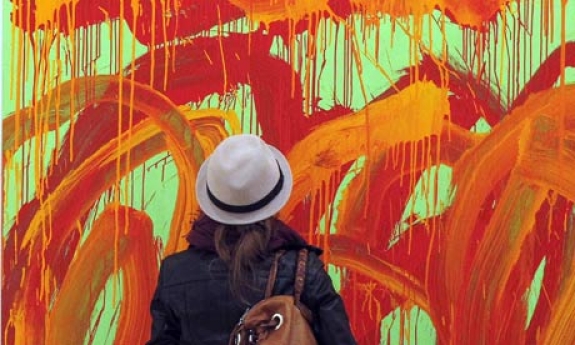Britain has never "got" abstract art. Even articles that appeared this week marking the death of Cy Twombly attracted comments of the "my child could do that" variety. It is tempting to dismiss these attacks as philistine, but that would be to ignore an eminently respectable and artistically sophisticated British tradition of disdain for abstract painting.
In a justly famous collection of essays called Art and Illusion, the leading art historian of postwar Britain EH Gombrich argued that western painting is the pursuit of reality – that in effect representational painting has a scientific vocation. This is a translation to art of the empiricism that goes back in British philosophy to John Locke. To look is to discover (although Gombrich showed how what we see is coloured by what we expect to see). If art is about trying to see things how they really are, what is the value of abstraction? For Gombrich it basically had no value at all.
It was not only theorists who believed this in postwar Britain. The best artists did, too. Francis Bacon and Lucian Freud fearsomely depicted real life as they found it – real human life, with the figure at the heart of the matter, the lonely human predicament their weighty concern. Bacon loudly dismissed the American abstract painting of the 1950s as looking like "old lace". Freud paints to this day with total commitment to reality and no interest whatsoever in abstraction.
So British sceptics who think abstract art like that of Twombly is just a load of visual guff can claim a tradition on their side.
Why, then, are we so different from Americans? In the same postwar years that saw British art dig itself into a realistic trench, US painting became heroically and famously abstract. From the moment Jackson Pollock appeared in Life magazine, the New York abstract painters were revered, renowned, and part of modern American national identity. The US and Britain were very different places at the time: America was at the height of its wealth and global power, and abstract expressionism suited the confidence of this epic society. Britain was living through the end of empire; everything was shrinking. Gloomy realism suited the times.



